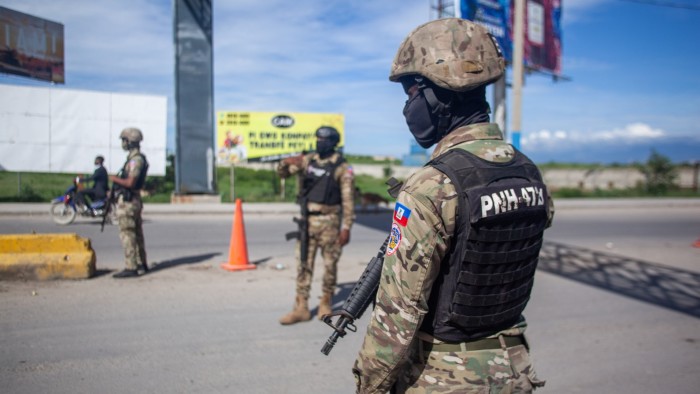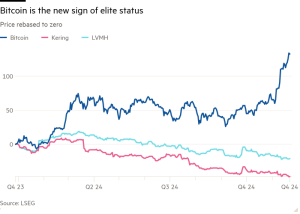US bans flights to Haiti after three planes struck by gunfire

Unlock the Editor’s Digest for free
Roula Khalaf, Editor of the FT, selects her favourite stories in this weekly newsletter.
The US has temporarily barred American carriers from flying to Haiti after gangs shot at three planes amid an escalating security crisis in the Caribbean nation.
The Federal Aviation Administration announced on Tuesday that it would prohibit flights for 30 days, a day after three aircraft — operated by Spirit, JetBlue and American Airlines — were struck by gunfire during violence that broke out as a new interim prime minister was sworn in.
The Spirit flight, which had set off from Fort Lauderdale, was forced to divert after being shot at while attempting to land in Port-au-Prince, the Haitian capital. Spirit said the plane, which landed in the neighbouring Dominican Republic before returning with its passengers to Florida, had been damaged by bullets and that one flight attendant was injured.
JetBlue reported that one of its aircraft was struck by gunfire while departing Port-au-Prince, and suspended flights there through to December 2. American Airlines on Tuesday halted flights until February 12 after the carrier found that one of its planes had also been shot.
Toussaint Louverture Airport, the country’s main international airport, was shut down on Monday afternoon and would remain closed until November 18, according to Haiti’s civil aviation authority.
The UN has also cancelled flights to Port-au-Prince, which officials said would complicate the delivery of humanitarian aid to a country where one in two people are acutely hungry.
“We call for an end to the escalating violence, to allow for safe, sustained and unimpeded humanitarian access, as well as for the protection of people,” Stéphane Dujarric, spokesperson for the UN secretary-general, said in a briefing on Tuesday, adding that some aid would be rerouted through the city of Cap-Haïtien.
Haiti has been engulfed in gang violence that has only worsened since the assassination of president Jovenel Moïse in July 2021.
Dozens of gangs operate in more than 85 per cent of the capital, according to the UN, while a UN-authorised and Kenyan-led international police force that began arriving in June lacks funding, equipment and personnel, with only about 400 officers assisting Haiti’s police against around 5,700 gang members, according to the UN.
The bloodletting spread beyond the capital last month, when at least 115 people were massacred in Pont-Sondé, a small town in the agricultural heartlands 100km north of the capital, according to local officials.
Unable to contain the crisis, the government of Moïse’s successor Ariel Henry collapsed in April this year, and was replaced by a transitional council charged with convening the country’s first elections since 2016.
But that council was thrown into disarray on Sunday night when eight of its nine members voted to sack interim prime minister Garry Conille, a former UN development worker who had sought the removal of three council members implicated in a corruption scandal. Conille’s replacement, businessman and former senate candidate Alix Didier Fils-Aimé, was sworn in on Monday.
Diego Da Rin, a Haiti researcher at the International Crisis Group, said that the fact that the planes were shot at from different neighbourhoods on opposite sides of the airport suggests the attacks were co-ordinated.
“The gangs are increasing the intensity of their attacks in the midst of this new political crisis to show that they are the ones in control,” Da Rin said. “They are telling the new administration that it will now have to deal with them at the negotiating table, or by fighting on the streets with the local security forces and the MSS [Multinational Security Support Mission], which is clearly understaffed.”
#bans #flights #Haiti #planes #struck #gunfire




